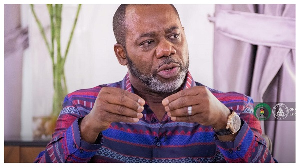Accra, April 18, GNA - Professor Akilagpa Sawyerr, Secretary General of the Association of African Universities, on Wednesday said the government's objective of making the private sector the engine of growth would be a mirage if it did not make a conscious effort to give financially support to the informal sector. He said the informal sector, under which the bulk of the students who left the Junior Secondary Schools fell, lacked the scholarships from government as pertained to the formal sector but that the contribution the informal sector made to national development could not be over emphasized.
Professor Sawyerr was chairing a development seminar organized by the Institute of Statistical Social and Economic Research (ISSER) and the Merchant Bank under the theme; "The Informal Economy And Ghana's Future Development: Policy Dilemmas and Prospects"
The seminar, which is one in a series for this year discussed the topic; "The Informal Sector in Education: The Changing Character and Role of Apprenticeships in Ghana," presented by Professor Mansah Prah, Dean of the Faculty of Social Sciences, University of Cape Coast Professor Sawyerr noted that apprentices, who made up the bulk of the informal sector, graduated without having the required knowledge in new technologies, thereby becoming strangers in the field they had been trained for.
He said there should be a clear policy to close the gap between the formal and informal education through the government giving financial support to apprentices and that this would prevent the exploitation of the apprentices by most trainers.
He said there were loads of research works in the university libraries but unfortunately these were taken for granted, adding that, it was time to take those researches seriously to serve as a guide in finding a solution to the problem.
Professor Mansah Prah, on her part noted that the presentation was based on results of a study of Cape Coast based on micro enterprises that trained apprentices from an ongoing study of blacksmiths and gunsmiths in Ghana.
She said the paper discussed the differences between formal and informal vocational education in terms of social attitudes towards them, pedagogy and policy and throws light on the changing nature of apprenticeship.
Professor Prah noted that the findings of the research showed that apprenticeship had been overlooked by the state and that the rapid growth of the informal economy called for a change in attitude by the state towards them.
She commended the government for the educational reform that would provide a subsidized year of apprenticeship for those who opted for it and that it would help solve part of the problem.
Business News of Wednesday, 18 April 2007
Source: GNA
















